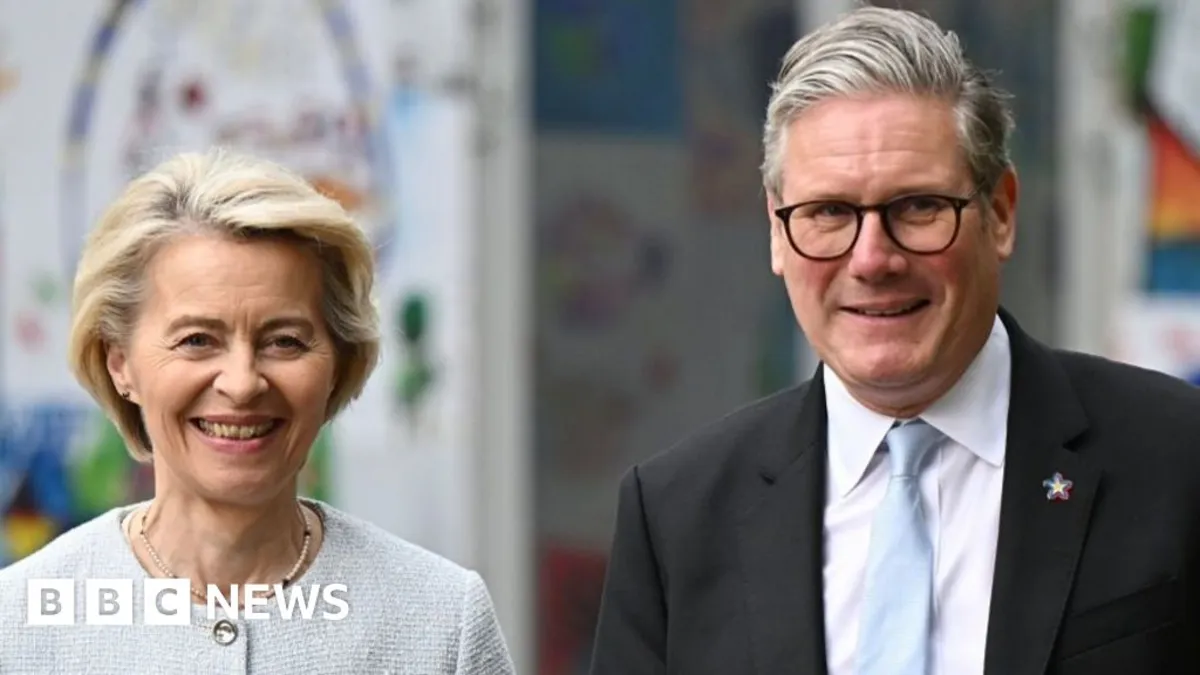
Negotiations for a comprehensive deal between the UK and EU are still in progress just hours before Prime Minister's important UK-EU summit scheduled for Monday. The stakes are high, as Sir Keir Starmer, leader of the Labour Party, is set to meet with European Commission President Ursula von der Leyen for the second time in just four days. Starmer aims to finalize a deal that covers a multitude of critical issues, including a potential youth mobility scheme and provisions for UK passport holders to utilize EU airport e-gates.
The ongoing negotiations could encompass various topics such as trade, security, and fishing rights—areas that have been contentious since the Brexit transition. Conservative leader Kemi Badenoch and Reform UK leader Nigel Farage have already criticized the prospective deal, labeling it a 'surrender,' despite the specifics of the agreement being unknown at this stage.
As talks continue late into the night, sources within the BBC reveal that there is currently no set deadline for reaching a conclusion. Leading the negotiations for the UK is Nick Thomas-Symonds, the minister for UK-EU relations. He expressed to the BBC's Sunday with Laura Kuenssberg his focus on pragmatic solutions aimed at enhancing jobs, reducing household bills, and fortifying borders. However, he refrained from disclosing any specifics about the potential deal, stating, “Nothing is agreed until everything is agreed.”
Expectations surrounding announcements related to trade and security include potential access for the UK to a significant 150 billion euro (£125 billion) EU defense fund. This access could be a substantial advantage for UK defense companies, allowing them to compete more effectively in the European market. Additionally, fishing rights are anticipated to be a pivotal component of the negotiations, particularly as the current post-Brexit fishing deal is set to expire at the end of June 2026.
The Conservative Party has signaled that any concession on UK waters and natural resources would be viewed as a betrayal to British fishermen, underscoring the sensitive nature of these negotiations.
Reports suggest that a proposed youth mobility scheme with the EU could enable young individuals from the UK to live and work in EU countries for up to two years. Sir Keir Starmer mentioned this proposal to the Times on Saturday, describing it as a reciprocal arrangement. However, the details concerning eligibility age and any potential caps on the number of participants remain vague, leading to mixed responses from opposition parties.
Kemi Badenoch has criticized the potential scheme, labeling it as a pathway to free movement 'through the back door.' Meanwhile, Richard Tice, the deputy leader of Reform UK, has expressed concerns that such a scheme would mark the beginning of EU free movement returning to the UK. In contrast, the Liberal Democrats have shown support for a capped mobility scheme, although party spokesperson James MacCleary has accused the government of delaying meaningful progress in negotiations.
The ongoing UK-EU negotiations are critical as they are not only about trade and security but also about the future relationship between the two entities post-Brexit. With significant issues such as fishing rights and a youth mobility scheme on the table, all eyes will be on the outcomes of the summit and how they may shape the future of UK-EU relations.